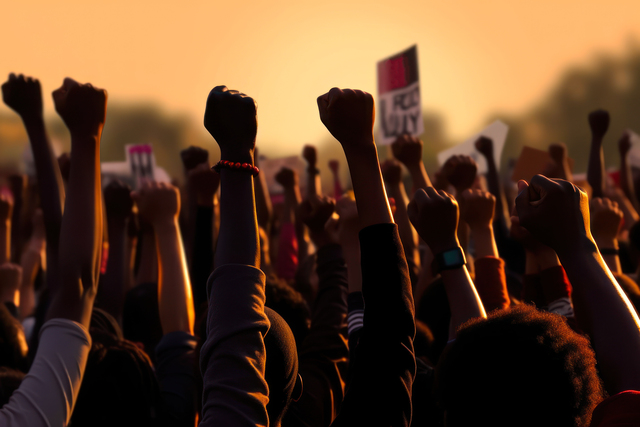Widespread protests ignite at major universities across the U.S. as students clash over Middle Eastern conflict, leading to multiple arrests and increased security measures
Recent developments across prestigious U.S. colleges, including Columbia, Yale, and New York University (NYU), have showcased a significant rise in campus protests due to the ongoing conflict in the Middle East. Pro-Palestinian protests have swept through these educational institutions, leading to substantial disruptions, including the cancellation of in-person classes and a series of arrests. The demonstrations have intensified, with students vocally demanding that their universities condemn Israel’s military actions in Gaza and divest from companies that support the Israeli military efforts. This movement has not only sparked debates over free speech and campus safety but has also highlighted the broader geopolitical alignments and sentiments among the student populations. Amidst these protests, accusations of antisemitism have surfaced, adding to the complexity of the situation as university administrations strive to maintain a balance between upholding free expression and ensuring the safety and inclusivity of all students.
Embed from Getty ImagesAP News
The protests, which initially started at Columbia University due to arrests of over 100 demonstrators, have notably spread to other institutions such as Yale and Harvard, showcasing a nationwide wave of solidarity among students. Columbia University reacted by locking campus gates and moving classes online to manage safety concerns. At Yale, tension escalated as police arrested about 45 protesters on charges of misdemeanour trespassing, highlighting the administration’s tough stance on maintaining order. This spread of protests and subsequent administrative reactions underlines the universities’ challenges in managing expressions of political dissent while ensuring campus security. The involvement of law enforcement has been a pivotal point of contention, with many students and some faculty members criticizing the heavy-handed responses that, they argue, suppress free speech. The narrative from AP News reflects a significant moment of confrontation and division within these academic communities, driven by international political conflicts that resonate deeply with a diverse student body.
The New York Times
The situation at NYU, where police arrested students following a standoff with the administration, represents the growing dilemma faced by university leaders nationwide. As protests continue, administrators are increasingly finding it difficult to quell the unrest that has gripped campuses, potentially lasting until the end of the academic year. The New York Times coverage emphasizes the deep divisions between student groups and the administrative challenges of handling such widespread and passionate protests. It also points to a broader pattern of escalating student activism that targets university investments and affiliations, urging a reevaluation of ethical and financial responsibilities toward global conflicts. This report sheds light on the complexities of governing educational institutions amidst such highly charged issues, reflecting on the broader societal divisions these protests unveil.
Fox News
The coverage by Fox News focuses on the events at NYU, where the administration requested NYPD intervention to manage a protest that was described as disorderly and disruptive. The article portrays the university’s perspective on needing to ensure safety and maintain order amidst growing tensions. It discusses the university’s stance on free speech juxtaposed with its obligation to control protests that escalate to the point of requiring police intervention. Fox News emphasizes the administrative challenges and the decisive actions taken to curb what they describe as potentially dangerous situations, underscoring the contentious nature of handling protests that intersect with broader political and racial tensions.
CNN
CNN provides a detailed account of how Columbia University has extended hybrid classes as a safety measure against ongoing protests. Their report discusses the broader impact of the protests on the university’s operations and the heightened security measures around Jewish student organizations during Passover. The coverage by CNN underscores the intense pressure on university administrations to balance safety with academic freedom and the rights to free expression. It also highlights the complexities involved in managing campus safety amid fears and allegations of antisemitism, illustrating the multifaceted challenges faced by educational institutions in politically volatile times.
New Statesman
This publication provides an analytical perspective on the protests, suggesting that while the demonstrations are intense and have a wide impact, they are unlikely to lead to a systemic change or a severe breakdown of order on campuses. It portrays the protests as a manifestation of deeper societal and political divides, reflecting a generational clash of values and the challenges of dialogue across these divides. The New Statesman’s coverage provides a more philosophical reflection on the nature of student activism and its implications for the future of political discourse in higher education settings.
The surge of pro-Palestinian protests across U.S. universities highlights a critical juncture in higher education where global conflicts are influencing campus policies and student activism. As universities strive to manage these protests, the challenge lies in balancing the free expression of students with the need to maintain safe and inclusive educational environments. The situation remains dynamic, with potential long-term implications for university governance and student political engagement.
